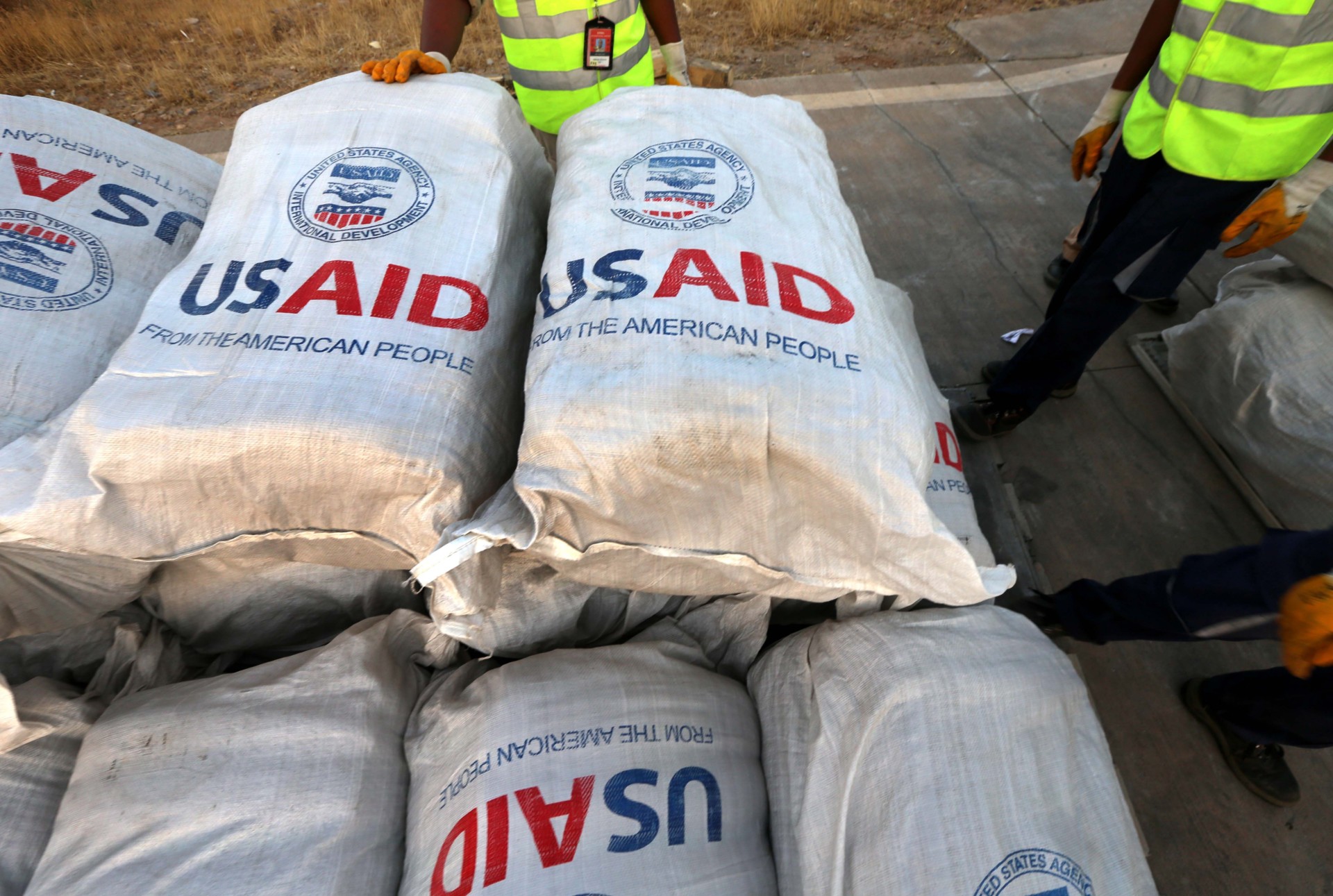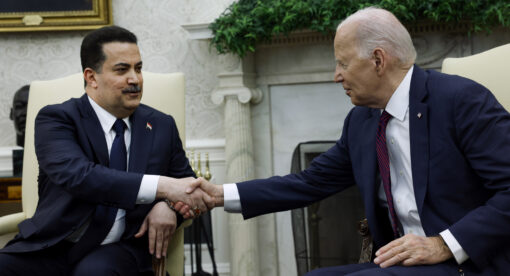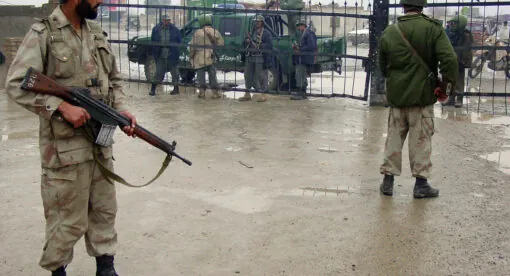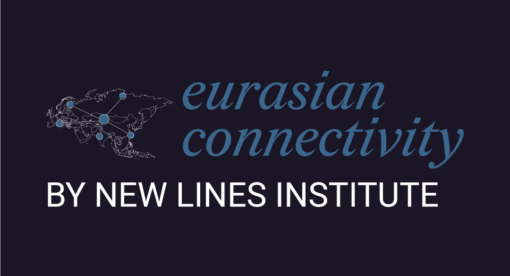The US response to emergencies has been severely hindered by this administration’s hostility to refugees, migrants, other vulnerable populations, and the federal agencies that assist them – whether through financial contributions, specialized expertise, or humanitarian diplomacy. This is in sharp contrast to previous administrations that considered humanitarian assistance to be an important aspect of American leadership. The lack of leadership has been detrimental to populations in need of our assistance as well as the American people. The U.S can signal its commitment to once again work toward humanitarian relationship by consistently engaging in principled humanitarian diplomacy, restoring its relationship with UNFPA and UNRWA, rebuilding the refugee resettlement program, and engaging civil society.
Humanitarian assistance is not a question of charity but of solidarity. No country is immune to disaster or conflict and the US is no exception. Americans have found themselves grappling with hurricanes, droughts, flooding and now a pandemic in which the Trump administration took neither preparedness nor response seriously. The current coronavirus (COVID-19) pandemic can only be brought under control through a coordinated global response, and one in which the world would normally look to the United States for leadership in finding diagnostic and treatment solutions – not just for Americans but for vulnerable populations around the world.
From a humanitarian perspective, all life has equal value. A pandemic does not discriminate between nationals, migrants, and refugees. A comprehensive response must include everyone in order to be successful. Humanitarian settings can be a tinderbox for the spread of infectious diseases. Restricted mobility, poor water,sanitation, and hygiene, denial of health care, over-crowding, malnutrition, and neglect/abuse by host country authorities contribute to vulnerability. Uighurs are imprisoned in “re-education camps” in China, where they are deprived of their human rights including access to health care. Asylum seekers in Greece reside in unsafe, over-crowded conditions with minimal soap and water. Over one million Rohingya refugees in Bangladesh’s Cox’s Bazar do not have the luxury of social distancing. Hospitals in Lebanon often turn away undocumented workers or set prohibitively high costs for testing. Years of deliberate targeting of health care facilities, staff, and transport in Syria by the regime and Russian military have left the country ill-prepared to respond to coronavirus.
Governments hostile to refugees and migrants are already using the pandemic as justification to deny entry to asylum seekers, deprive them of basic services, and deport them without due process. As UNHCR puts it, “We caution against feeding that fear. It doesn’t just demonize migrants, it puts your own people at risk, because if you are frightening people, if they are afraid that something bad will happen to them if they go to the hospital, then they’ll never get checked. Everyone is worse off when that happens.”
Faith based and civil society groups must push back when xenophobic governments abuse vulnerable populations in the name of protecting public health. Welcoming the stranger is central to Christianity, Islam, and Judaism. Even when change is not forthcoming at a national level, advocacy can promote humanitarian responsibility at state and community levels. In 2020, forty-two states, including many with politically conservative governors, affirmed their willingness to continue receiving resettled refugees. This would not have happened without the engagement of faith based and civil society groups. These groups can advocate for humanitarian leadership in national, state, and local elections.
The US need not be everywhere and respond to every emergency – but by supporting and shaping the international humanitarian architecture it does not need to. Humanitarian agencies, when adequately funded, staffed, and managed, can respond to emergencies around the world where it would be difficult for the United States to do so. Further, the US can help make possible solutions that would not otherwise exist. Humanitarian assistance and diplomacy can lay the groundwork for safe, voluntary return. Local integration, including the ability to work legally for adults and for children to attend school, is critical for those who cannot go home. Resettlement, for the most vulnerable, is another solution which the US excelled at providing until the Trump Administration dramatically scaled it back.
While the US has fallen from humanitarian ideals in recent years, a course correction is still possible. The path back to humanitarian leadership begins with being honest about our mistakes, learning from them, and to the extent possible, rectifying them. For example, it will not be enough to apologize and reunite separated families of asylum seekers – reparations would show a commitment to addressing past cruelties. Building capacity to process asylum seekers, and passing legislation to protect the process, would be the logical next step toward ensuring similar abuses do not happen in the future.
Reinforce Humanitarian Diplomacy
For those engaging in humanitarian diplomacy, the messenger matters as much as the message. Saying the right things abroad matters little if the US doesn’t treat migrants and asylum seekers with dignity and compassion at home. When U.S. domestic policies mirror humanitarian diplomacy abroad, only then will U.S. government leadership be seen as credible and relevant by the international community. Other countries will be watching to see if the U.S consistently engages other countries on humanitarian issues – including allies. When the US is perceived as only criticizing countries with which it has poor or hostile relations about these issues, it undermines humanitarian principles, potentially placing both humanitarian responders and beneficiaries at risk.
Restore Relationships with UNRWA and UNFPA
Humanitarian investments must demonstrate concern for all conflict affected populations, including those which are protracted and politicized. Funding to the UN Relief and Works Agency for Palestine Refugees (UNRWA) should be restored primarily for humanitarian reasons as Palestinians continue to lack durable solutions and live under tremendous hardship, particularly in Syria and Gaza. There is also a compelling political and regional stability argument to be made as UNRWA is one of the few service providers in Gaza apart from Hamas. Simply put, marginalizing UNRWA empowers terrorist groups which is not in the interest of the United States. UNRWA has new leadership, making it an ideal time to re-engage, maintain oversight, and to support them in reaching vulnerable Palestinian refugees. Recently confirmed cases of COVID-19 in Gaza illustrate the importance of ensuring access to health care for Palestinians, the broader region, and the global response.
Funding to the United Nations Population Fund (UNFPA) should also be restored out of our concern for women and girls living in emergency situations around the world, many of whom have experienced sexual and other forms of violence such as rape, intimate partner violence, child marriage, and female genital mutilation. These programs save lives and it is far easier to shape the direction of a multilateral agency when funding and engaging it. The health of women and girls, as well as their active involvement in civil society and government, promotes better-governed, more stable societies which also benefits the United States.
Rebuild the U.S Refugee Resettlement Program
For decades, the United States oversaw the largest and best-managed refugee resettlement program in the world. Refugees resettled to the United States have had an opportunity to re-start their lives and, time after time, have given back tremendously to their communities. Rebuilding will take years but doing so will signal our commitment to support durable solutions for refugees around the world. In order to more directly involve the public, a private sponsorship program should be created to complement, but not replace, the existing model. The politicization of refugee resettlement demonstrates a need for consistent education and engagement. A private sponsorship model would empower private citizens groups to commit time and resources towards the resettlement of refugees – it is a concrete response for the American who asks, “What can I do to help?”
Engage Civil Society
Most Americans vastly overestimate the funding that the United States invests in humanitarian assistance and underestimate its impact. The next administration must engage the American public on humanitarian issues, and more than this, involve them. Putting forward political appointees with humanitarian expertise and a track record of articulating and defending humanitarian principles would be positive. Universities, diaspora groups, faith groups and the private sector can also be powerful advocates and allies if they are informed and engaged.
The next administration will face serious, perhaps even unprecedented, economic challenges.. Rather than turning inward, and continuing the “America First” policy instituted by the current administration, this should be a time to reflect on the role of U.S. humanitarian leadership. Becoming a humanitarian leader once again, when the world needs it most, benefits vulnerable populations around the world as well as Americans. What is right from a humanitarian perspective can also be smart in terms of peace building, stability, and economic development. The actions above would signal a commitment to begin the long walk home to humanitarian leadership and the safer, healthier, and more prosperous world it would help bring about.
Bryan Schaaf is a consultant based in Geneva with expertise in emergency response, monitoring and evaluation, and humanitarian diplomacy. He served as the Senior Humanitarian Advisor for the State Department Bureau of Population, Refugees and Migration and the USAID Office of Foreign Disaster Assistance respectively in Ukraine from 2016-2019.
The views expressed in this article are those of the author and not an official policy or position of the Newlines Institute.







